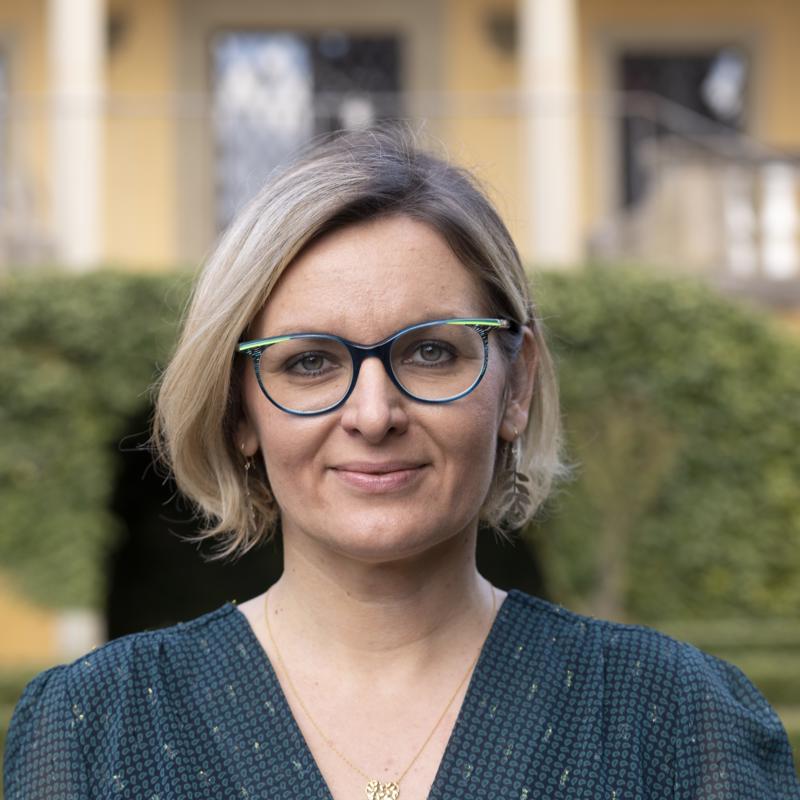
Digital Infrastructure and the State: Innovation, Competition, and Public Purpose
Home » Digital Infrastructure and the State: Innovation, Competition, and Public Purpose
Dates
19/11/2025 - 17/12/2025
Location
Online
Level
Advanced
Delivery mode
Frontal lectures + e-learning activities
This multidisciplinary course offers a comprehensive exploration of digital infrastructure as a foundation for innovation, competitiveness, and strategic autonomy in the digital age.
It begins by exploring the concept of Digital Public Infrastructure (DPI), using the EuroStack Vision as a reference point to frame broader debates on technological sovereignty, interoperability, and the role of state-led digital architecture.
Subsequent modules address a wide array of interlinked issues: investment trends and market consolidation in telecom networks; the tension between data sharing and data protection in cloud computing environments; and the strategic role of semiconductors as both an industrial and geopolitical priority.
Through real-world case studies, the course investigates how industrial policy, competition law, and geopolitical considerations shape innovation trajectories in areas relevant for different layers of digital infrastructure.
Any questions? Contact the team at CDS.Trainings@eui.eu
- Course Brochure
- Updated on: Oct 14, 2025
- ENG (707.62 KB - pdf)
Course Team
-

Pier Luigi Parcu
Director
Centre for a Digital Society
Director
Centre for Media Pluralism and Media Freedom
-

Marco Botta
Deputy Director
Centre for a Digital Society
Adjunct Professor
University of Vienna
-

Anna Renata Pisarkiewicz
Research Fellow
Centre for a Digital Society
-

Pauliina Scarabattoli
Teaching Assistant
Centre for a Digital Society
Course Faculty
-

Howard Benn
Consultant
Benn Consulting
Visiting Professor
Bristol University
-

Alexia González Fanfalone
Head of the Connectivity Services and Infrastructures Unit
OECD
- Digital Public Infrastructure (DPI): framing digital sovereignty and interoperability.
- Investment trends and market consolidation in telecom and connectivity networks
- Data sharing versus data protection in cloud computing and storage
- Industrial policy instruments and the strategic role of the State in enabling innovation
- The interplay between competition and industrial policy
Week 1 (Live class on 19 November) – Lecturer: Howard Benn (ETSI)
The role of Standards in support of Europe’s Digital Infrastructure Needs
Live class (1.00 – 2.30 PM) + Group exercise (3.00 – 4.30 PM)
Week 2 (Live class on 26 November) – Lecturer: Alexia González Fanfalone (OECD)
Networks & Connectivity: Investment and Market Consolidation
Live class (1.00 – 2.30 PM) + Group exercise (3.00 – 4.30 PM)
Week 3 (Live class on 3 December) – Lecturer: Scott Marcus (EUI)
Cloud Computing and Data Storage: Data Sharing v. Data Protection
Live class (1.00 – 2.30 PM) + Group exercise (3.00 – 4.30 PM)
Week 4 (Live class on 10 December) – Lecturer: David Eaves (University College London)
What is Digital Public Infrastructure? Framing DPI in the EuroStack Vision
Live class (1.00 – 2.30 PM) + Group Exercise (3.00-4.30 PM)
Week 5 (Concluding event on 17 December)
Online Roundtable: Innovating Europe’s Infrastructure: Aligning Industrial Policy and Competition in the Digital Age
Chair: Maria Alessandra Rossi (EUI, University of Chieti-Pescara)
- Francesca Bria (University College London)
- Wolfgang Kopf (DT)
- Pier Luigi Parcu (EUI)
- Thomas Streinz (EUI)
- Amal Taleb (SAP)
- Understand the strategic role of digital infrastructure—including DPI—in promoting social cohesion and in enabling innovation, competitiveness, and technological sovereignty
- Analyse the economy of telecom investment, market consolidation, and infrastructure deployment
- Evaluate the legal and regulatory tensions between data sharing, data protection, and cloud governance
- Appraise how industrial policy, competition law, and geopolitics shape innovation trajectories across digital infrastructure layers
The online course is delivered on an online platform where participants can meet and interact with instructors.
The training adopts a multidisciplinary approach, allowing participants to gain a combination of theoretical and practical skills whilst promoting creative thinking.
Each module consists of dedicated reading materials, self-evaluation assessments, discussions, complementary video lectures, and interactive live classes. Recordings will be available shortly after each live class.
The course methodology is based on virtual classes, guided group discussions, forum exchanges and weekly assignments. Each of these is detailed below:
Virtual Classrooms
The live class takes place every week, from 13:00 to 14:30 CEST.
The instructor makes a presentation (i.e., max. 90 minutes) based on a PowerPoint (recommended length: 30/45 slides), possibly allowing for 5’ break in between (if it fits the structure of the lecture) and for questions and clarifications all along the lecture.
During the virtual class, participants will be asked to engage thanks to interactive ZOOM polls.
In between the class and group discussion, a break of 30’ takes place. The length of the break can be reduced according to the preference of the lecturer and the participants. · The 90’ group discussion puts into practice the key messages delivered during the lecture through an open debate among participants, facilitated by the lecturer through structured discussion points.
The recording of the virtual sessions will be made available on the platform as soon as possible during the week.
Group discussion
A group discussion follows every virtual class. It lasts max 90 minutes.
Participants stay in the plenary, and they are led through a participative open discussion by the lecturer through discussion points, but the participants are free to shape it to their interests through questions and personal comments.
The discussion could, for example, cover recent cases and news about the regulation of digital platforms. Participants are invited to contribute their own professional experience or research interests.
The lecturer of the week supervises the discussion and contributes additional insights from the lecture.
Forum of discussion
The instructor provides the text of a topic to be posted in the forum to start a collective discussion after the virtual class.
During the week, participants can continue interacting by posting follow-up questions.
Weekly assignment
The weekly assignment consists of a self-evaluation assessment (10 questions with 3 or 4 different options and some feedback for each answer – only one option should be correct), which participants can undertake after the virtual classroom.
Completion of the weekly assignment and the different levels of engagement are necessary to receive the certificate of attendance, distinction, and excellence.
Individual assignment
Participants who wish to obtain the Certificate of Excellence must submit an individual assignment by the end of the course. Detailed instructions will be provided on the e-learning platform and at the beginning of the course.
This course is designed for professionals and experts working at the intersection of technology, law, regulation, and policy, including:
- Officials from national and international regulatory bodies (e.g. NRAs, NCAs, data protection authorities)
- Policymakers and advisors in ministries and public institutions focused on digital, economic, or industrial policy
- Professionals from international organisations and development banks engaged in digital infrastructure projects
- In-house legal and public policy professionals in telecom, cloud, and tech companies
- Consultants and analysts working on digital markets, infrastructure, or innovation policy
- Researchers and academics with a focus on digital governance, competition, or innovation studies
At the end of the course, participants can earn three types of certificates depending on their level of engagement and performance throughout the course.
- Certificate of attendance: participants are expected to complete all the weekly quizzes. To qualify for this certificate, a commitment of 4-6 hours of learning per week is required.
- Certificate of distinction: participants must complete every weekly quiz and actively engage in the weekly forum discussion by posting a message that has a meaningful contribution. The relevance of the contribution will be evaluated by our internal staff. To earn this certificate, a commitment of 6-8 hours of learning per week is expected, including attendance at 4 out of 6 classes.
- Certificate of excellence: to qualify for this certificate, participants must meet the requirements for the certificate of distinction, attend all virtual classes, and submit an individual assignment by the end of the course. A commitment of 8-12 hours of learning per week, including attending all virtual classes, is expected.
General course fees: 750 EUR
National Regulatory Authorities, National Competition Authorities, donors of the Centre for a Digital Society and academics: 600 EUR
Post-graduate students: 500
Cancellation Policy:
- Fifty per cent (50%) of the fees paid will be returned when registration is cancelled before 1st October 2025.
- There will be no return of fees for cancellations after 1st October 2025.
Digital Infrastructure and the State: Innovation, Competition, and Public Purpose is a core component of the Tech and Governance (TEGO 1: Innovation and Digital Infrastructure) specialisation track, offered as part of the EUI Global Executive Master (GEM) programme. Participants who choose TEGO 1 as their specialisation are automatically enrolled in this online course.
Completion of the course is required to obtain a certificate and entails the following requirements:
- Regular attendance in virtual classes
- Active participation in weekly forum discussions
- Completion of weekly quizzes
- Submission of a final assignment


